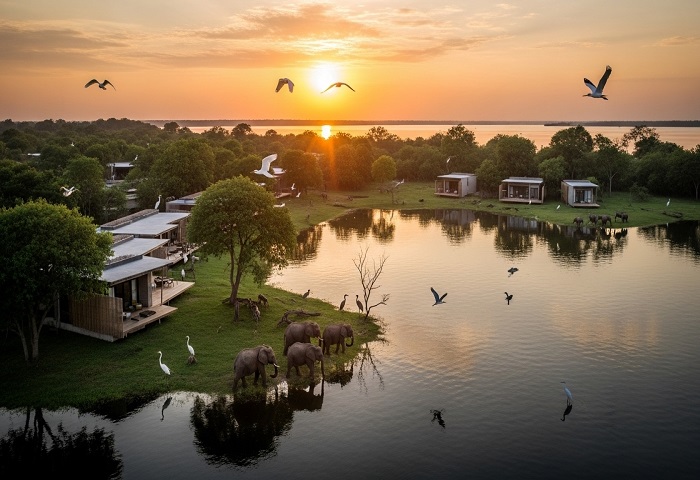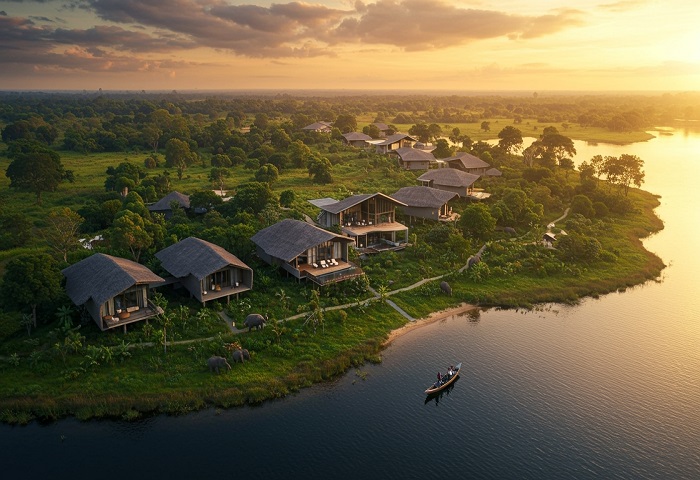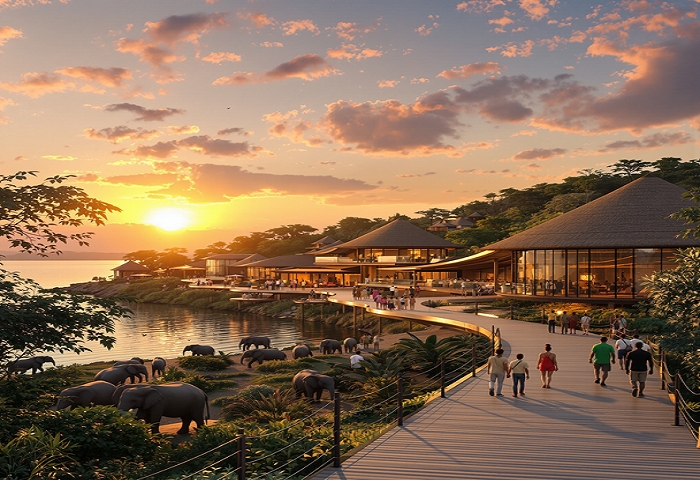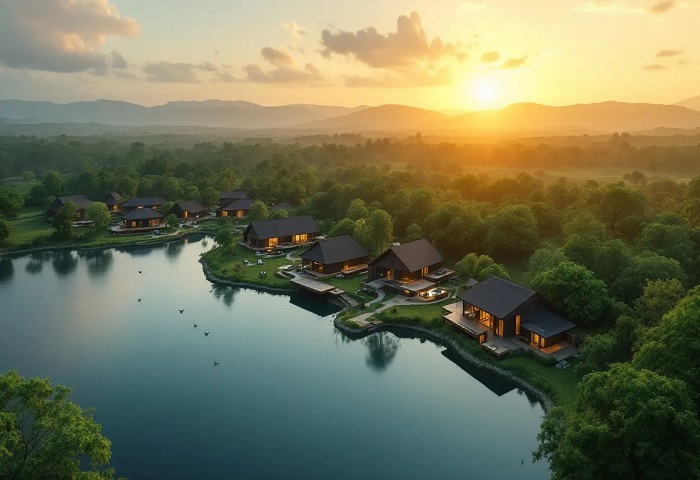
Pioneering the Digya Ecotourism Destination
Project Overview
Earthcore Investments is spearheading the Digya Ecotourism Destination, a ambitious $50 billion USD initiative aimed at establishing a premier sustainable tourism hub on the shores of Lake Volta in Ghana's Digya National Park. As the second-largest national park in Ghana, spanning approximately 3,743 square kilometers in the Bono East Region, Digya boasts a diverse ecosystem including 34 mammal species (such as elephants and buffalos), 214 bird species, and 26 herptiles. Bordered by Lake Volta—the world's largest man-made lake by surface area at 8,502 square kilometers—this location offers unparalleled natural beauty, from scenic waterways ideal for canoe safaris and fishing adventures to lush forests supporting biodiversity conservation.
The project envisions a holistic ecotourism model featuring luxury eco-lodges designed with renewable materials, advanced conservation centers for research and education, guided wildlife viewing platforms, and immersive cultural experiences showcasing local Ghanaian traditions. By integrating these elements, the destination not only caters to adventure seekers and nature enthusiasts but also positions Ghana as a competitive player in Africa's tourism landscape, rivaling established hubs like Kenya or South Africa.
Investment Appeal and Economic Potential From an investor's perspective, the Digya project aligns with global sustainable tourism trends, where ecotourism is projected to drive Africa's economic transformation. According to insights from conservation organizations, sustainable tourism in Africa emphasizes community partnerships, biodiversity protection, and long-term viability, with sectors like ecotourism contributing to job creation and GDP growth. In Ghana specifically, tourism accounted for about 7% of GDP in 2019, with ecotourism fostering community development through initiatives like site assessments and local empowerment.
Key economic drivers include: Revenue Diversification: Multi-stream income from accommodations, guided tours, water sports on Lake Volta, and cultural events, tapping into the growing demand for low-impact travel. Market Growth: Ghana's tourism sector is expanding, bolstered by government efforts to attract foreign investment via infrastructure improvements and AfCFTA opportunities for intra-regional visitor flows. Household spending on tourism is expected to rise from $55 billion in 2021 to $81 billion in 2025, per reports. ROI Projections: With Africa's ecotourism market gaining momentum—fueled by trends like communal conservancies and responsible practices—investors can anticipate attractive returns. Challenges such as infrastructure gaps are mitigated through strategic partnerships, ensuring scalability.
Sustainability and Social Impact Sustainability is at the project's core, adhering to principles that redefine tourism beyond mere "giving back." This includes low-carbon operations, wildlife protection in Digya's protected areas (established in 1900 and nationalized in 1971), and community involvement to prevent exploitation. Trends in African sustainable tourism highlight the need for models that benefit both conservation and local economies, as seen in successful communal projects across the continent. Potential risks, such as environmental pressures from development, are addressed through rigorous ESG frameworks, drawing from successful African case studies where ecotourism has enhanced biodiversity while creating employment. For instance, Ghana's Volta Region offers untapped potential with attractions like Mt. Gemi hikes and island cruises, which the project will amplify.
Strategic Positioning and Future Outlook By investing in Digya, stakeholders contribute to Ghana's ambition to become Africa's top tourist destination, supported by investments in intermodal transport, film villages, and eco-reserves. The project's alignment with broader African trends—such as digital transformation in tourism and adventure-based experiences—ensures resilience against market fluctuations. Earthcore invites investors to engage in this visionary endeavor, offering equity stakes, joint ventures, or funding rounds. With primary sources indicating strong growth trajectories, this is not just an investment—it's a catalyst for inclusive, sustainable progress in Africa.









